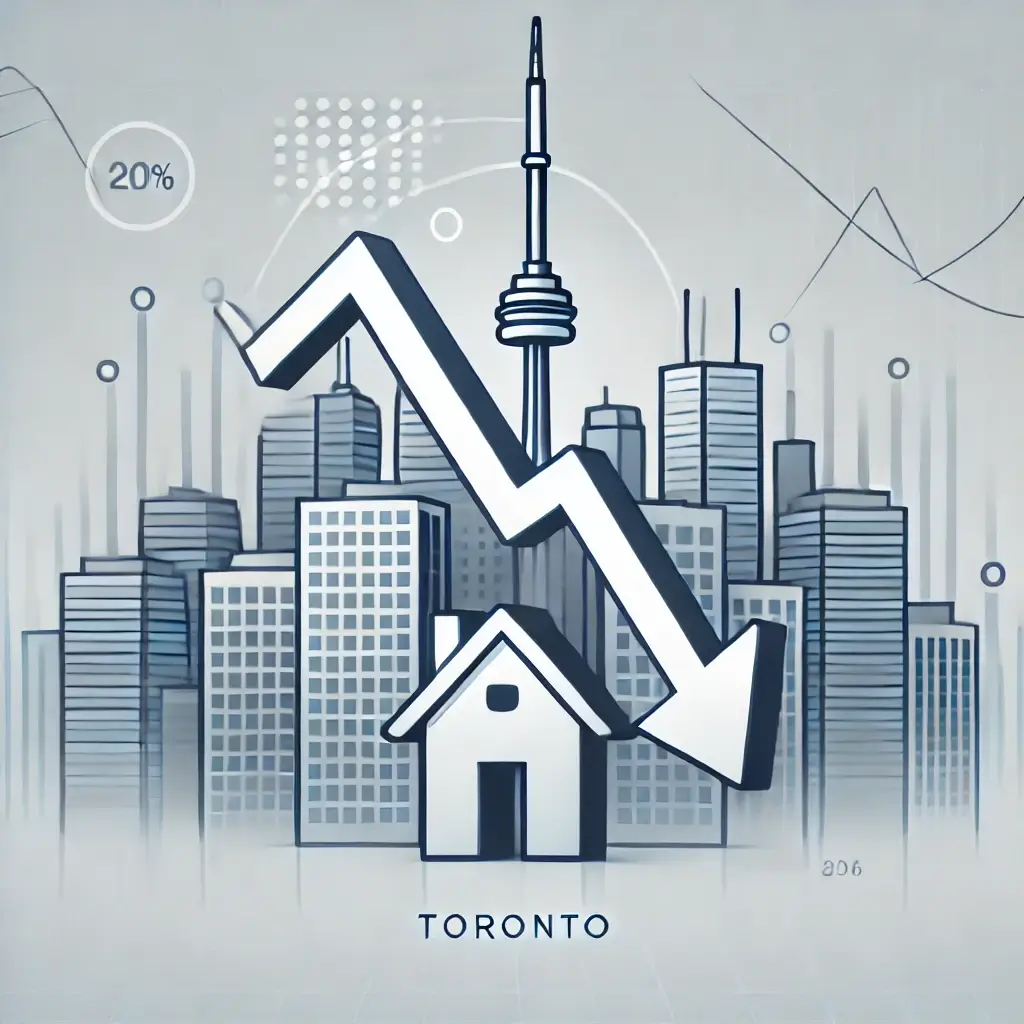The real estate market has always been a reflection of broader economic trends, influenced by factors like interest rates, housing supply, and consumer demand. As we approach 2024-2025, the market is navigating uncharted territory, with global economic shifts, technological advancements, and changing buyer preferences shaping its trajectory.
In this blog, we’ll explore expert predictions for the real estate market, focusing on key factors driving these changes, regional trends, and actionable insights for buyers, sellers, and investors.
Key Factors Influencing the Market in 2024-2025
1. Interest Rates
The Bank of Canada has implemented multiple rate hikes since 2022 to combat inflation, and these higher rates continue to impact borrowing costs.
- Prediction: While rates are expected to stabilize or decrease slightly in late 2024, they will likely remain higher than the pre-2022 levels, keeping monthly mortgage payments elevated.
- Impact:
- First-time buyers may face affordability challenges, delaying their entry into the market.
- Investors might pivot towards cash-flow-positive properties or wait for more favorable conditions.
2. Housing Supply
Canada faces a significant housing supply shortage, with immigration driving increased demand. The federal government aims to build 3.5 million new homes by 2030, but meeting this goal will require accelerated construction efforts.
- Prediction:
- Urban areas, especially in Toronto and Vancouver, will see intensified demand for condos and multi-family properties due to limited detached housing availability.
- Developers will focus on transit-oriented developments to cater to young professionals and families.
3. Shifts in Buyer Preferences
Post-pandemic trends, such as remote work, continue to shape housing demand:
- Suburban and rural properties remain popular due to affordability and lifestyle appeal.
- Buyers prioritize homes with larger spaces, home offices, and energy-efficient features.
- Urban centers regain interest as hybrid work models emerge, increasing demand for condos near transit hubs.
4. Technology Integration
Technology is revolutionizing the way properties are marketed, bought, and sold.
- Virtual tours, AI-driven market analysis, and blockchain-based transactions are making the industry more efficient.
- Prediction: Smart home features and eco-friendly construction will become standard, attracting tech-savvy buyers.
Predicted Trends for Buyers
1. Slower Price Growth
Home prices are expected to rise more modestly compared to the boom years of 2020-2021.
- 2024 Outlook: Prices will stabilize in many regions, particularly in the GTA and Vancouver, as higher interest rates temper demand.
- 2025 Outlook: Limited supply will drive gradual price increases, particularly in high-demand neighborhoods.
2. Increasing Competition for Affordable Housing
With affordability top of mind, smaller homes, condos, and townhouses will see fierce competition.
- Tip for Buyers: Secure pre-approval early to understand your budget and move quickly when the right property comes along.
Predicted Trends for Sellers
1. A Buyer’s Market Transition
Increased inventory in some regions may shift the balance toward buyers.
- 2024 Advice: Sellers should focus on strategic pricing and staging to stand out in a competitive market.
2. The Power of Renovations
Investing in minor upgrades like modern kitchens or energy-efficient windows can boost appeal and command higher prices.
- Case Study: A home in Mississauga sold 10% above asking after the owner installed solar panels and updated the landscaping.
Predicted Trends for Investors
1. Rising Popularity of Multi-Family Investments
With rental demand surging due to high homeownership costs, multi-family properties are becoming a hot commodity.
- 2024 Insight: Investors should explore transit-oriented developments in the GTA, where rental yields are highest.
2. Preconstruction Properties as a Hedge Against Inflation
Preconstruction investments offer an opportunity to lock in today’s prices for future gains.
- 2025 Tip: Focus on projects near expanding transit lines, like the Eglinton Crosstown LRT in Toronto, to maximize appreciation potential.
3. Commercial Real Estate Evolution
Hybrid work trends are reshaping office space demand, with co-working spaces and mixed-use developments on the rise.
- Prediction: Retail spaces in suburban neighborhoods will grow in demand as families relocate from urban centers.
Regional Highlights for 2024-2025
Toronto and the GTA
- Prediction: Condo markets will experience steady growth as affordability remains a concern for detached homes.
- Preconstruction projects near transit hubs like Vaughan and Scarborough will attract investors.
Vancouver
- Prediction: Limited land availability and high immigration will keep prices elevated.
- Sustainable developments and energy-efficient buildings will dominate new construction.
Calgary and Edmonton
- Prediction: Alberta’s affordability and strong job market will continue to attract buyers from other provinces.
- Detached homes and townhouses will see strong demand, especially in family-friendly neighborhoods.
Montreal
- Prediction: Rising rental demand will create opportunities for investors in multi-family properties.
- Condo markets will remain stable, with modest appreciation expected.
Challenges to Watch
1. Economic Uncertainty
Global economic shifts could impact buyer confidence, slowing transactions.
2. Regulatory Changes
Government policies, including rent controls and zoning laws, may affect investor strategies.
3. Supply Chain Issues
Construction delays and rising material costs could impact new developments.
How to Prepare for 2024-2025
For Buyers:
- Start Early: Monitor the market and get pre-approved to act quickly.
- Work with Experts: Partner with a real estate agent who understands your target neighborhoods.
For Sellers:
- Optimize Timing: List your property during peak selling seasons for maximum exposure.
- Enhance Appeal: Invest in affordable upgrades and professional staging to attract more offers.
For Investors:
- Diversify: Consider both residential and commercial properties to mitigate risks.
- Leverage Data: Use big data analytics to identify high-growth areas and forecast rental yields.
Final Thoughts
The real estate market in 2024-2025 will be shaped by stabilizing interest rates, evolving buyer preferences, and an ongoing focus on affordability and sustainability. Whether you’re a buyer, seller, or investor, understanding these trends and preparing strategically will be key to success.
At Taya Real Estate, we’re here to help you navigate this dynamic market with confidence. Visit Taya Real Estate or follow us on Facebook for expert advice tailored to your needs.







